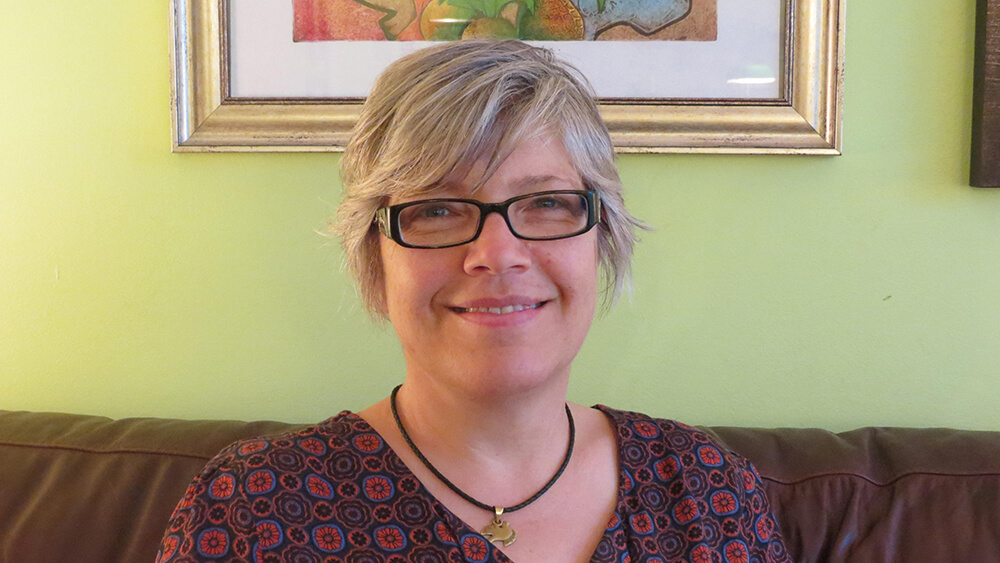From the time you are 15 or 16 to the time you are 26 or 28, your brain undergoes rapid cognitive changes.
“It’s the busiest time [of brain development] since early childhood, and it will never be that busy again,” says Lynda Loewen, a counsellor at Recovery of Hope, a program in Winnipeg run by Eden Health Care Services. “That time of rapid brain development is a huge part of the reason for impulsivity in that age range.”
Self-care can play an important role in helping you negotiate this time of life when thoughts and feelings are changing. Whether you are struggling with mental illness or simply trying to navigate the stresses of high school or university life, self-care can go a long way to helping you thrive.
Here are some self-care tips:
1. Sleep. It’s generally accepted that teenagers need about nine hours on average per night, while for adults seven to eight hours a night appears to be the best amount. Too little sleep can impair memory and physical performance, and can even lead to mood swings. Sleeping allows the body to rest and ensures that people are able to function at an optimal level throughout the day. If you are having trouble sleeping, at least take time to rest. “Scheduled rest is extremely important,” Loewen says.
2. Exercise. In addition to its physical benefits, regular exercise can contribute to a sense of mental well-being. It releases endorphins in the brain, powerful chemicals that energize your spirits and make you feel good. Physical activity also helps relax the muscles and relieves tension in the body. “There are psychiatrists that make daily exercise as much a part of the prescription as medication,” Loewen says. “Exercise is every bit important as everyone says it is.”
3. Eat well. Along with getting enough rest and exercising, eating healthy food is foundational to feeling good. “Often when people are spinning out of control, it’s one of those three things that are suffering,” Loewen says. As with proper rest and exercise, eating well helps energize people so they can perform at optimal levels.
4. Add structure. Having a reliable structure to your day is important, Loewen says. Getting up at a reasonable hour, eating at the same times, working at the same times and going to bed at the same time “holds us in and helps us to not spin too far out of control,” according to Loewen.
5. Do things with other people. The structure you implement might include weekly activities that involve other people, such as attending a worship service, prayer group, yoga class or playing on a sports team—something where people are counting on you to be there, and where you can spend time relating to others. “We’re not meant to be alone,” Loewen says. “We all need each other.”
6. Confide in someone. “If we are left too much with our own thoughts, we lose perspective,” Loewen says. “That’s just how we’re made.” Confiding in someone helps us regain our perspective and allows us to have our thoughts and feelings affirmed. “We need to feel normal—to know it’s all right to have the struggles that we do.”
As a young person, feeling as though the world doesn’t make sense and not knowing quite where you fit in is normal and a natural part of transitioning into adulthood.
“The more we can let young people know that the existential angst they feel is developmentally important and not something to be anxious about, the better,” Loewen says.
Taking the above steps can make the transition more bearable. When in doubt, find someone to talk to who is older than you that you trust, like a parent, teacher, pastor or counsellor.
“Sometimes it’s good to talk to somebody your own age, but sometimes you need the steadying influence of someone who’s older,” Loewen says.
See more in the Focus on Mental Health series:
Guard your heart and mind
A living death
One way your church can stop hiding mental illness
Mental health awareness incorporates art and poetry
Depression resurrection
‘We all need counsellors’
Helping to prevent suicide
Leaders being equipped to build up the church
‘There is love in this room’
‘I am still holding out hope that I will be free of this one day’









Leave a Reply
You must be logged in to post a comment.